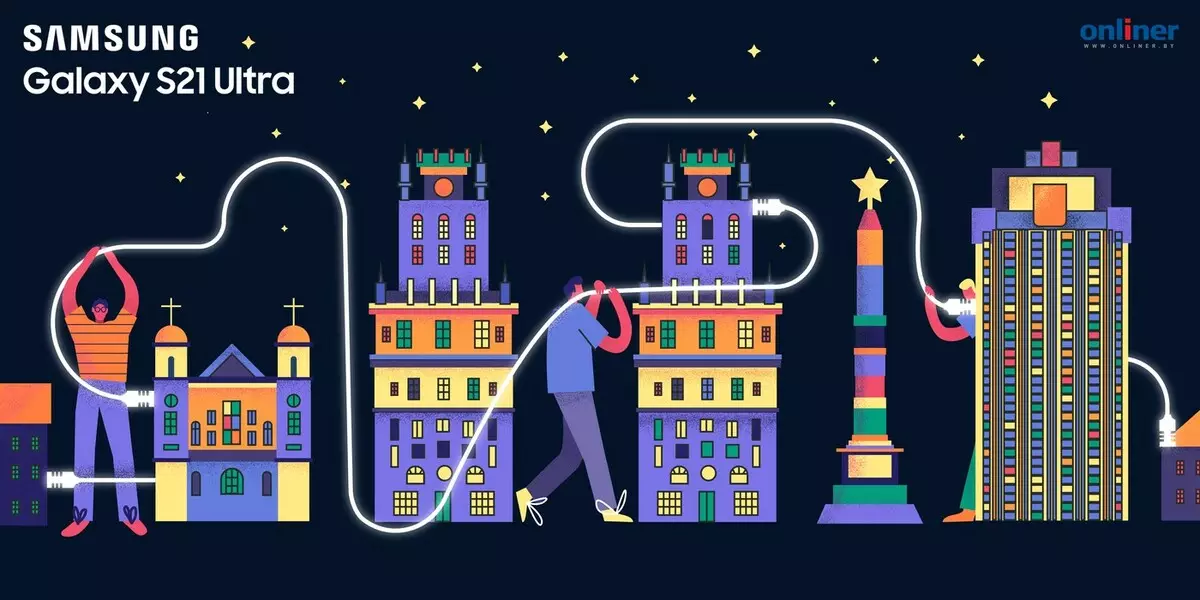
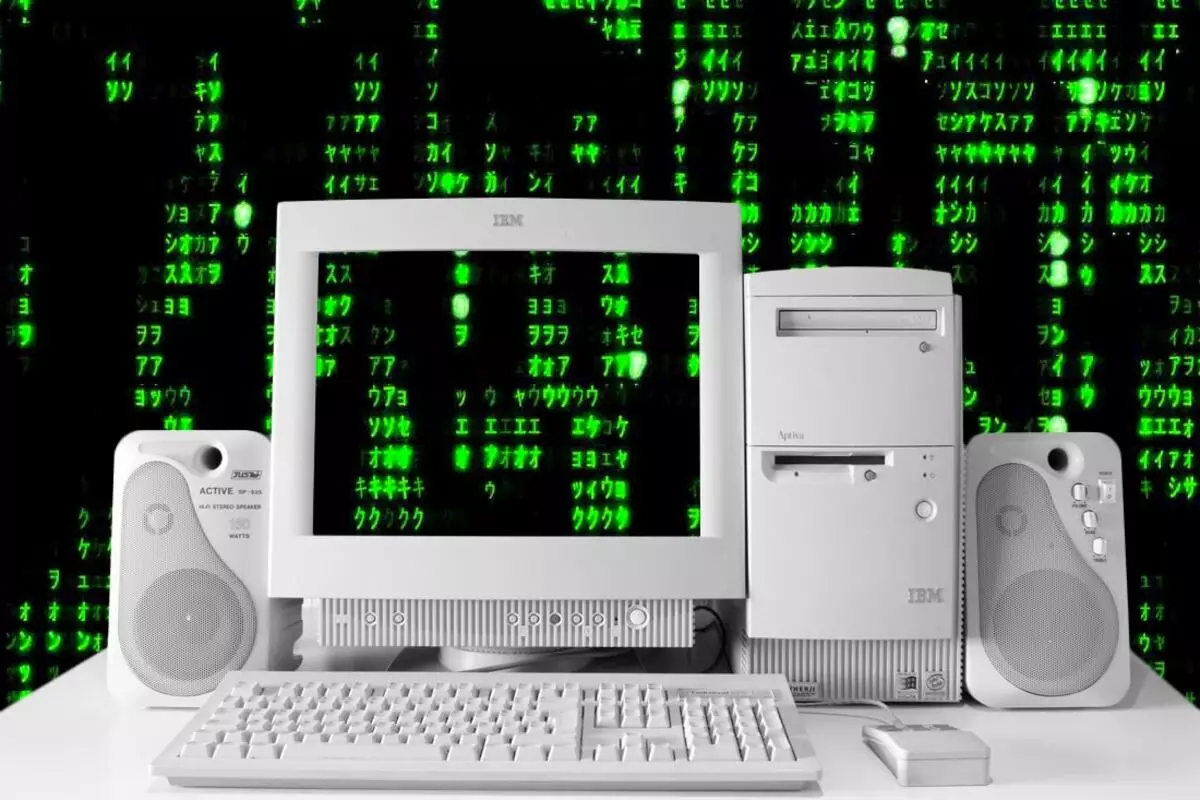
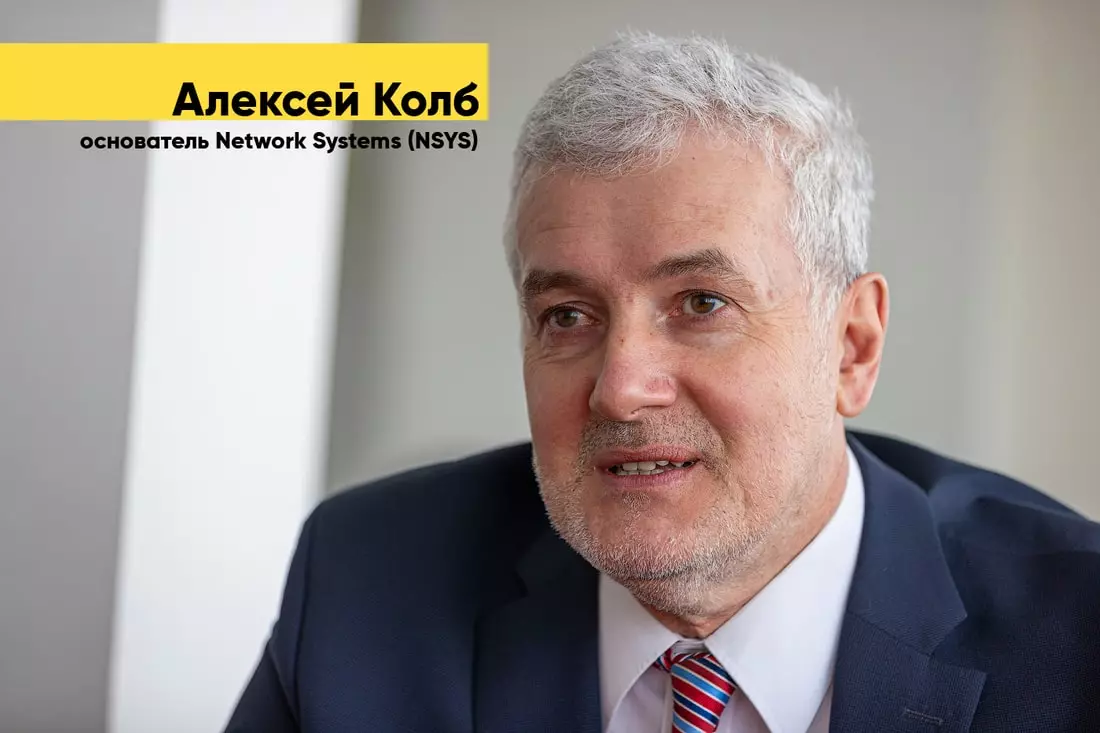
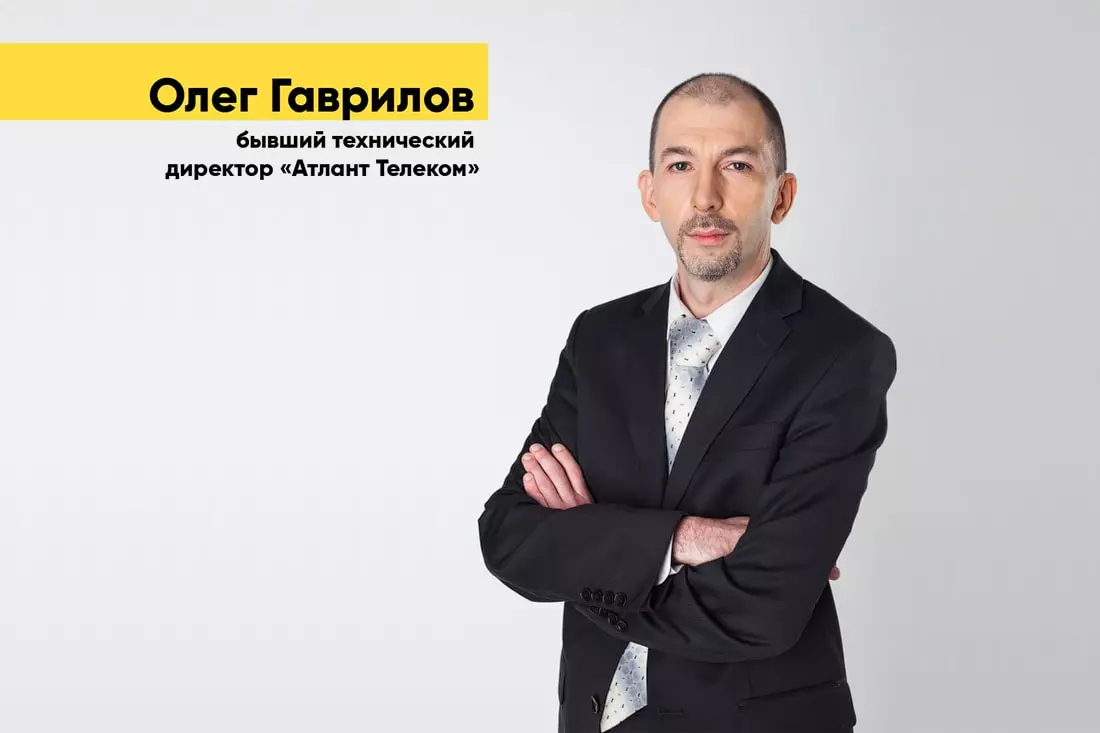
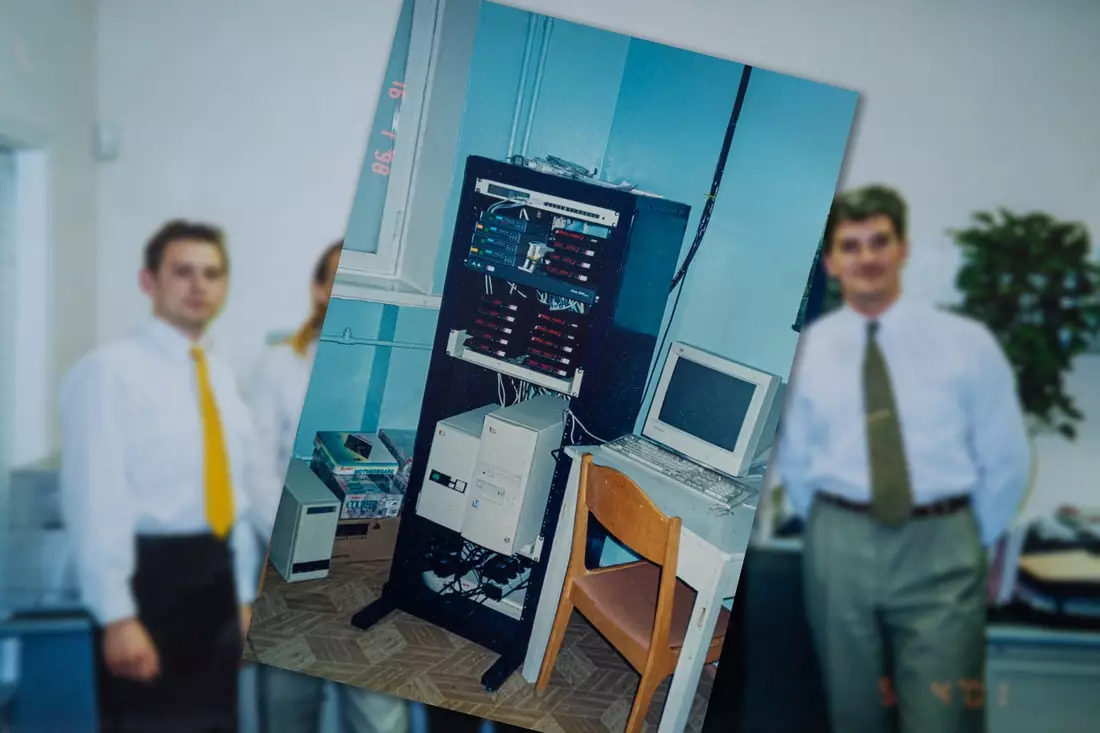


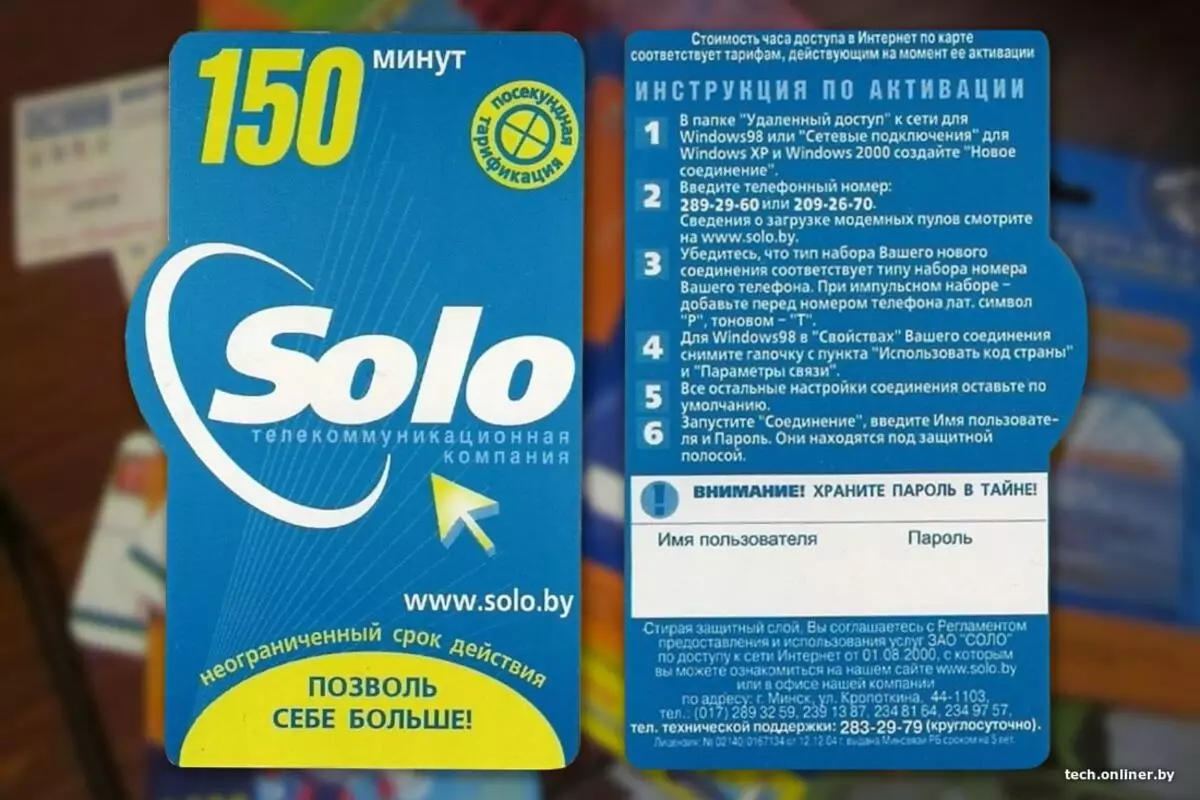

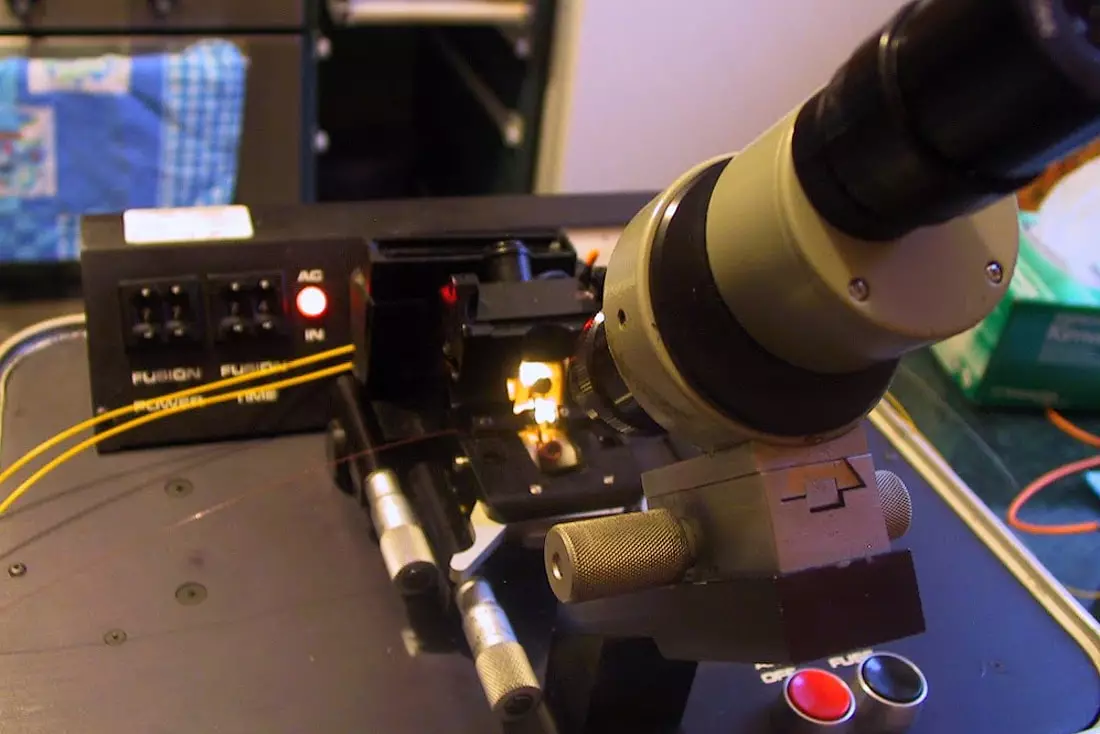
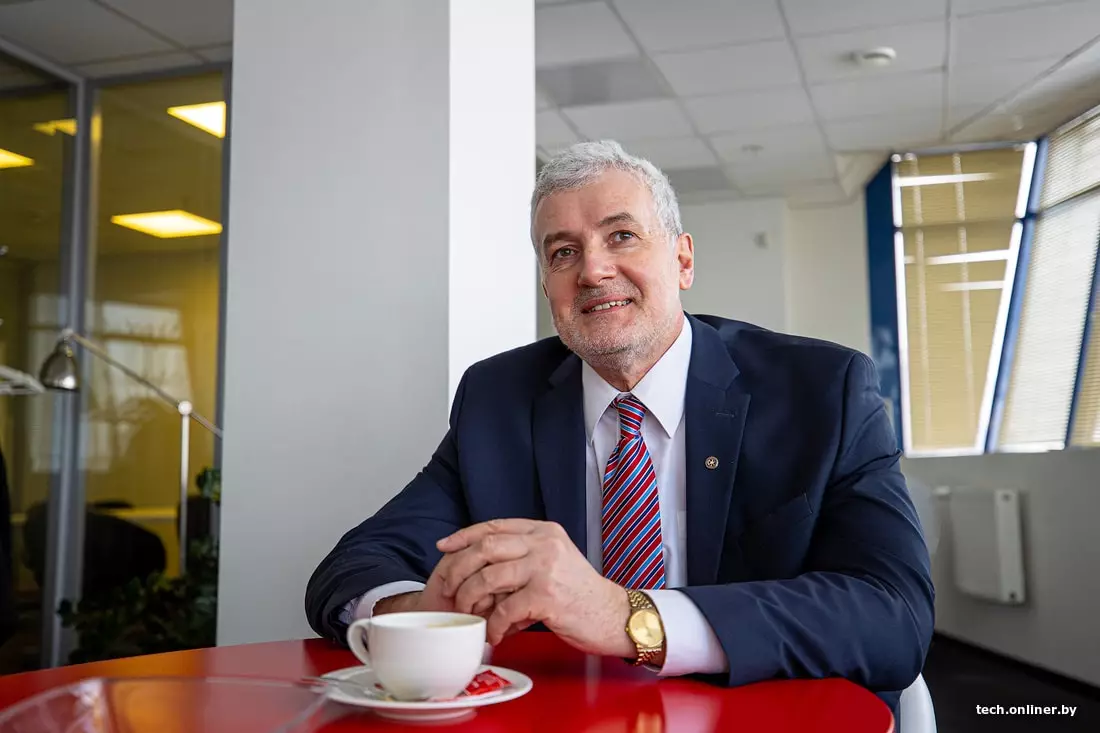
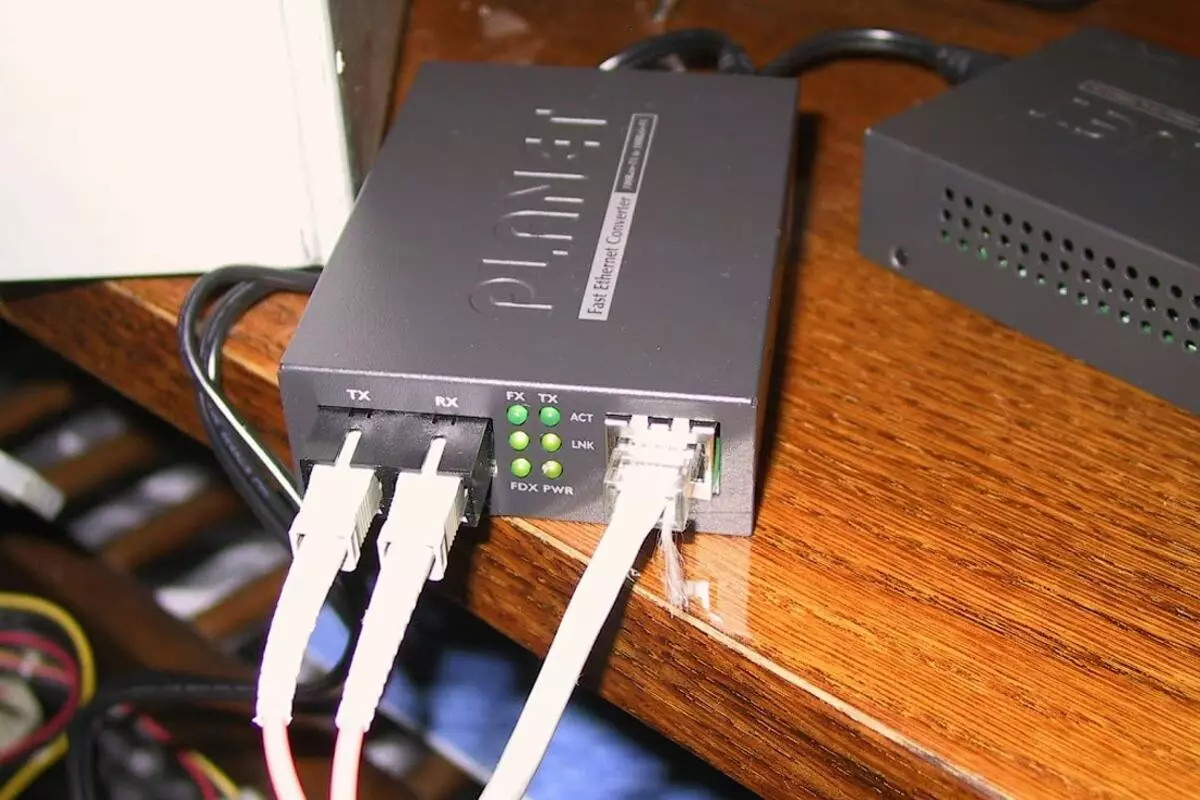
Downloading games of 100 GB for a couple of hours, watching a movie in the 4K resolution on the cutting service and unloading the archive of photos from vacation in a couple of minutes have already become such an ordinary, which is hard to present times without all this. Rather, theoretically, some things were, but they would have left even days, and weeks and months - if we take into account the present volume of content. Onliner, along with Samsung Galaxy S21, continues to study the story of the Baynet in all parts. In past releases, we talked about the very emergence of the Internet in Belarus and the creation of the first sites. And today let's remember the first providers, number 8-600-100 (it, by the way, has been inaccessible for four years) and huge accounts for the phone that users have fallen on the Internet fell.
Computer cost about $ 1000 at the rate
Although the Internet in Belarus appeared at the beginning of the nineties, for many years he remained the prerogative of institutes, research centers and everything that was then understood under the almost forgotten abbreviation "NII". Belorus Nikolay recalls that he himself use the Internet "In the usual understanding", it became approximately in 1995-1996, although many people were not yet personally familiar with the World Wide Web. Question "Is this home Internet?" Surprising our interlocutor: "Pardon, then the computer cost the order of dollars. I do not remember that then it was with the ruble, but it was very difficult to earn such money. And I was a student. The Internet used at work, and, in fact, it was only among a number of major organizations. " Nikolai at that time was at the Academy of Sciences. Probenthers began to connect the Internet about the second half of the nineties, but for a long time it remained rare.
Twenty years ago, computers looked about so
The first Internet users in Belarus are specialists who needed access to foreign information for their work. Nikolay recalls that he then went to the Internet to search for information on foreign sites, correspondence with foreign colleagues and friends: "I had the opportunity to use the NSYS account, which was paid by my employer."
The home Internet then connected, too, it was possible, but much rests on the availability of connection or its value, but in the price of the computer. In this time, the PC could afford a few, and only with the new Millennium, the computer will become a more or less ordinary device in the apartments of Belarusians.
- In my circle of communication, many have used the Internet, but this circle was peculiar: someone was engaged in international business, someone developed sites - even then some market began, "Nikolai recalls.
Start providers
Belpak is considered the first Belarusian network that the state forces began to develop back in 1992 from the switching unit in Minsk. Then it was used for email, and demand significantly exceeded the offer. Therefore, in a year five nodes appeared in the regions of the country. Also in the first half of the nineties, a private Network Systems provider appeared, it is also NSYS or "NSC". His founder Alexei Kolb recalls that the time is "euphoria from publicity and restructuring." At the same time, the Office of the American Association of Progressive Communications appeared in Moscow, which opened up the Internet access to Muscovites. It was called the organization "Glasnet", she began to work as a provider.
- I graduated from the university in 1993 and was looking for myself. For some time I was engaged in the translation of paper drawings in AutoCAD, and then received an offer to head the office "Glasnet" in Belarus. They removed the room on Russian street in some abandoned kindergarten, I dragged the computer from home and made the server from it, "Alexey recalls.
A year later, on September 9, 1994, the entrepreneur registered Network Systems:
- The first time worked through the "Glasnet", at the same time the first customers appeared. We had a license number two, and the first, probably, "Belpaka".
In about the same years, other providers began to appear, and there were quite a lot of them: "Solo", "open contact", "Belindfield" (adsl.by) and others. The technical director of Atlant Telekoma (founded in 2000) Oleg Gavrilov recalls that the market for the beginning of the millennium was not relatively free and special competition between the providers.
- To say that these providers were large, - probably no. Although it depends on how to measure. Beltelecom and MGTS were completely different divisions, and Beltelecom at that time did not provide broadband access (BLYFLY brand appeared much later). The provision of access to the Internet end users was engaged in MGTS: they gave fragrant access, but they had cosmic, with a commemorative payment. As for the rest ... to call a large provider with a company with 60 lines of dial-up access and 5 thousand customers who irregularly use the switching access to the Internet? Now even in the local network, any dormit is sitting more people.
Wonderful number 8-600-100
Niche was free, and providers formed mainly enthusiasts. The founder of the "home network" Dmitry Egypto says that the creation of the company was, in fact, a forced measure, and initially wanted to simply make life easier:
- The creation of the provider came forced. We were not going to become a provider, just tried to make access to the Internet cheaper and more affordable for us, our neighbors and everyone who connected to our network. Gradually, the amateur hobby network has become work, and competitors and state structures have forced it to legalize it.
During the creation of the "home network" of the market as such, there was no, and the demand for access to the Internet was colossal. Finance were minor, the main investments are a huge amount of labor and knowledge in the field of network construction.
Photo: Alexey Flask Archive
Demand was huge, and he formed in a short time:
- The appearance of the first "regroll" showed that the service is needed, the demand was huge. Enthusiasts saw a chance, as with relatively small investments and make a favorite thing, and maybe earn. We started with 60 lines of switching access. There was nothing more. Then 120 lines appeared, even later - 240, "says Oleg Gavrilov. - Belarus of the 2000th - Epoch of the Switched (Dial-Up) Access. He, in principle, was available. Already then worked Beltelecom, there was a wonderful number 8-600-100. All used them: both Jurlitsa and the Physicians.
Now it seems ridiculous, but the speed of access was usually 33.6 kbps. It was the maximum speed available for the standard. Some tried to run the channel for 53 kbps. And then, depending on the quality of the line, you either received such speed or did not receive it.
The telephone connection was then analogous, and more so, sometimes it was necessary to share one line into several apartments: Different phone numbers, the wires stretch into your apartment and neighbor's housing, but you can use the phone only in turn, because the line is spares.
- And I was not one such, this is not some exception. It turns out when you sat on the Internet for a long time and the line was busy, the neighbor could not call anywhere. And, it happened, came, pounded on the door: "What is generally, let me call!" Fun, in general. Then civilization wandered into our edges: they saw the line, that is, now she was already only mine. Previously, it was impossible to unspoke it: a queue for ten years, write down and wait.
Cake for the five years of NSYS. Photo: Alexey Flask Archive
Sell a computer to pay the Internet accounts
In 2000, the Internet was expensive, although no one remembers accurate prices - especially if we take into account not only the dollar rate to the ruble, but also a few devaluation, and then the denomination. However, all our interlocutors say that prices were pretty bissing. And at the same time it did not stop anyone. Our reader Vladimir remembered that one day to pay bills for the phone had to sell the old computer:
- It was some nightmare: My brother was then teenagers, the Internet is something new, interesting, and I want to spend time. We hung in secret nights in Chat.BY (there were thematic sections: about sports, fishing, and so on) and "chat Mail.ru". It would seem, just communicate, and in fact it takes time. Now we are basically some kind of information on the Internet are looking for, and then I just had fun with someone. I learned the "solo on the keyboard" and wrote in chats very quickly. One day they saw that for the phone it was necessary to pay about 80 thousand rubles. I remember my parents swore strongly for the amount of 15-20 thousand rubles, when I and a girl with a lot of phone talked. And here 80 thousand! I went to the market in Zhdanovichi and spare parts sold the old computer to repay the debt. Parents did not know anything for a long time.
Switched access was usually charged by connection time, and not by the volume of downloaded traffic. Therefore, slow speed led to additional costs: Pages are loaded insanely for a long time, and money is invested.
But, as at all times, a good financial situation could make life and work on the Internet more pleasant, says Oleg Gavrilov (Atlant Telecom):
- There is money - connect through the unbelled access "Beltelloma" or go to other providers who had their own modem pools. In principle, there was even a little cheaper. Who is cooled, bought an ISDN line - it is essentially the same pair cable, only at both ends other equipment, special ISDN modems were used. Such a solution has already made it possible to have a speed of 64 kbps, and it was a digital signal, and not analog. That is, the signal has already received stable. Who else has come to, he had a dedicated telephone line for the Internet only. Well, very rich connected synchronous communication channels: there was megabit or two. For understanding: one such modem costs $ 1,200. It was not available to individuals, the legal entities, in fact, too. Who connected? Providers and maybe some banks.
Sometimes providers did not bid not affordably, but on the quality and stability of the connection - even at a higher price. This path chose NSYS:
- We tried fundamentally to keep the price bar higher than other providers, by 7-12%. For this money they bought high-quality Cisco routers, modem U.S. Robotics. Among our customers are almost all Belarusian banks. True, then some law came out, and we took this segment.
Photo: Archive Alexei Flask "Technical Supports of the Year before 2005 was not"
With the advent of the first users, there was a need for their support. Technical specialists were then few, and providers solved the problem with the frames in different ways. In the case of a "home network", specialists were gained from the same enthusiasts, as well as regular employees of the company, says Dmitry Egypt:
- The best specialists were brought up and raised themselves, most employees were from network subscribers. And they understood everything themselves.
Oleg Gavrilov ("Atlant Telecom") says that then specialists of technical support as such and there were no:
- There was no technical support for the year before 2005. At the time of the basis of the provider, we were only six people, of which three techies are two administrators and one cabler. Here they were engaged in all: and network engineering, and system administration, and support, and deposants.
With the development of the provider, the state was formed from people with technical education: Polytech, radiotech. Also taught people in places those nuances that were not revealed in universities.
Dmitry Egyptko ("Home Network"): "The first welding machine on the network. Used, bought in Moscow on the flea market "
Technical issues then arose a lot: people did not know the features not only connecting to the Internet, but also the work of the computer itself. Sometimes, according to Alexey Kolba (NSYS), it was keen:
- grabbed funny stories, and many of them are associated with technical support. Somehow we changed the racks with the servers, and we did not work for about one and a half hours the Internet. The user calls and complains: no Internet. And our specialist advises: they say, maybe you have to defragment the disk? The process of defragmentation just lasted about one and a half hours. Then the same client called again and thanked: Thank you, helped. Since then, often, discussing some problems, asking each other, whether the disk is disconcted.
Alexey Kolb.
There were no problems with the expansion of the subscriber base. Even on the contrary: people themselves referred to the providers for connecting.
- Conditionally, one district was one provider - like now with cable TV. And you had no choice: either inarrupt access, or a provider, or you have no Internet, "says Oleg Gavrilov (" Atlant Telecom ").
Only by the very end of the 2000s, the situation was changed to the opposite: providers began to fight for the client.
The search for a suitable area looked like this: Ideally, there should be no competitors on this territory. Then the place is determined with the highest population density - as a rule, these are sleeping areas with high-altitude houses. Finally, you need to more or less understand, in which area in people wealth is higher.
After providers occupied all areas, competition began: "Each provider had a choice: to go to the conditional Angarsk with five-story buildings, where few people, or go to the green meadow - but you will be second there, and then the third."
As a result, competition led to the fact that in each area there were 3-5 providers, and the struggle was already for the best conditions for customers: the cost of tariffs, stocks and other things.
Dmitry Egypto ("Home Network") recalls that the network initially looked like "Cascades of uncontrolled switches in attics and in basements interconnected by twisted pair and" air "through the attic of neighboring buildings." But after a few years they began to build a network based on the fiber-optic communication line:
- Technically, for ten years, we have passed the way from unmanaged "soaps" for $ 15 to modern multiphways managed second-level switches connected by fiber, with multiple routing centers and traffic aggregation.
Dmitry Egyptko ("Home Network"): "2005, the first experiments with fiber optic in the network. First of all, to replace "air", which were regularly burned during a thunderstorm "
Over time, the market shared large providers among themselves, and the connection options in large cities has become so much that it remained only to choose the best tariff for themselves. But it will be far from 2000.
We present the new Galaxy S21 Ultra. His cameras are film studio in your hands. With it, you can shoot a video in 8K and turn each frame in a bright picture simply on the go. And the combination of the superfast 5-nanometer processor exynos, a durable glass case and battery for a whole day of work fully justifies the model name - ULTRA.
Prepared with the support of Samsung Electronics LLC Rus Kompani, UNP 7703608910.
See also:
Our channel in Telegram. Join now!
Is there something to tell? Write to our telegram-bot. It is anonymously and fast
Reprinting text and photos Onliner without resolving the editors is prohibited. [email protected].
